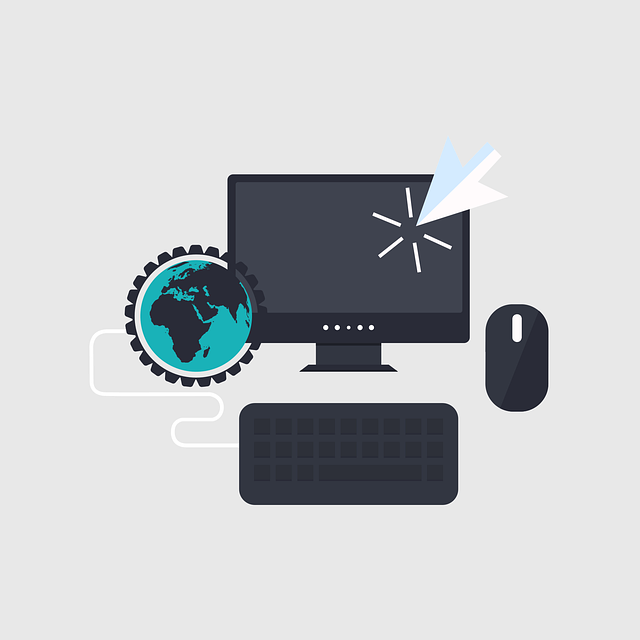The integration of Artificial Intelligence (AI) tools into vehicle repair businesses dramatically improves operational efficiency and accuracy. By leveraging machine learning algorithms, these tools automate processes from diagnosis to quality checks, predict component failures, enhance precision repairs, reduce labor costs, and shorten service times. Real-world examples demonstrate significant benefits: a mid-sized shop saw 30% diagnostic time reduction and 25% accuracy improvement, while a quick-lube franchise experienced a 15% increase in repeat business and reduced no-show appointments. Implementing AI tools for operational efficiency is a strategic move that boosts productivity, meets customer demands, and maintains a competitive edge in the automotive market.
“Revolutionize your vehicle repair business with AI consulting—the ultimate game changer for modern auto care. Discover how artificial intelligence (AI) can transform your shop’s operations, from streamlining work processes to enhancing precision and speed.
This comprehensive guide explores the potential of AI tools for operational efficiency in repair shops. Learn about implementing innovative solutions, leveraging case studies, and understanding the benefits that AI brings to the table, ensuring your business stays ahead in an ever-evolving industry.”
- Understanding the Potential of AI in Vehicle Repair: Unlocking Operational Efficiency
- Implementing AI Tools: Strategies for Repair Shops to Enhance Their Workflows
- Case Studies: Real-World Success Stories of AI Consulting in the Auto Industry
Understanding the Potential of AI in Vehicle Repair: Unlocking Operational Efficiency

The integration of Artificial Intelligence (AI) into vehicle repair businesses represents a significant leap forward in operational efficiency and accuracy. AI tools for operational efficiency in repair shops can streamline various processes, from initial diagnostic to final quality check. These tools leverage machine learning algorithms to analyze vast amounts of data, enabling technicians to make informed decisions quickly. By providing predictive insights on component failures and enhancing precision during repairs, AI drives down labor costs and reduces the time required to service vehicles.
Imagine a repair shop where AI systems can automatically identify parts needed for a repair based on vehicle diagnostics, suggest optimal replacement options, and even predict when preventive maintenance is due. This level of automation not only improves productivity but also enhances customer satisfaction by ensuring faster turnaround times and more accurate repairs. As the world of automotive technology evolves, embracing AI tools for operational efficiency in repair shops becomes a strategic necessity for staying competitive and meeting evolving customer demands.
Implementing AI Tools: Strategies for Repair Shops to Enhance Their Workflows

Implementing AI tools is a strategic move for vehicle repair businesses to enhance their operational efficiency and stay ahead of the competition. These advanced technologies can streamline various aspects of the repair process, from diagnosing issues to inventory management. By leveraging machine learning algorithms, AI systems can analyze vast amounts of data, providing accurate and rapid assessments of vehicle damage, which in turn accelerates the repair turnaround time.
With AI-driven tools, repair shops can automate repetitive tasks, such as parts identification and ordering, reducing human error and increasing overall productivity. Natural Language Processing (NLP) capabilities enable efficient communication between shop staff and customers, while computer vision systems can inspect and assess vehicle components with remarkable precision. This level of technological integration promises to revolutionize the industry by making auto repair services more accessible, faster, and cost-effective for businesses and their clients alike.
Case Studies: Real-World Success Stories of AI Consulting in the Auto Industry

In recent years, several automotive businesses have successfully leveraged AI tools for operational efficiency in their repair shops. One standout case study involves a mid-sized auto shop that implemented an AI-driven diagnostics system. This technology enabled them to reduce diagnostic times by 30% and improve accuracy rates by 25%, leading to higher customer satisfaction and increased revenue. By automating initial assessments, the shop could allocate its human resources more effectively, allowing technicians to focus on complex repairs and custom modifications.
Another compelling example is a franchise of quick-lube centers that adopted AI for predictive maintenance. Their system analyzed vehicle sensor data to anticipate service needs, reducing unexpected breakdowns and optimizing appointment scheduling. This proactive approach not only lowered operational costs but also enhanced the customer experience by eliminating wait times. The results were remarkable: a 15% increase in repeat business and a significant reduction in no-show appointments. These real-world success stories underscore the transformative potential of AI consulting for vehicle repair businesses, offering both cost savings and competitive advantages.
AI has emerged as a powerful ally for vehicle repair businesses, offering significant improvements in operational efficiency. By implementing AI tools, repair shops can streamline their workflows, reduce errors, and enhance customer satisfaction. The case studies presented highlight the tangible benefits of AI consulting, demonstrating its potential to revolutionize the auto industry. As technology advances, embracing AI tools for operational efficiency in repair shops is not just an option but a strategic necessity.
